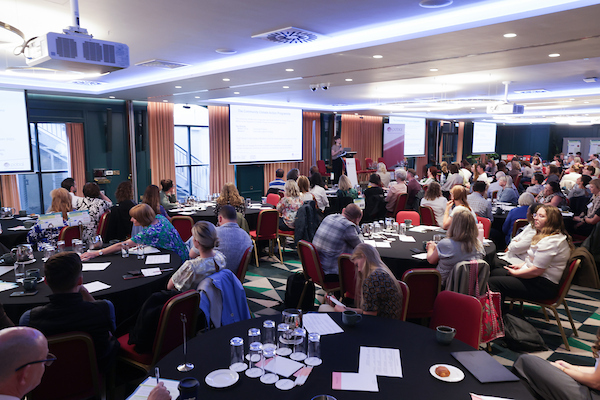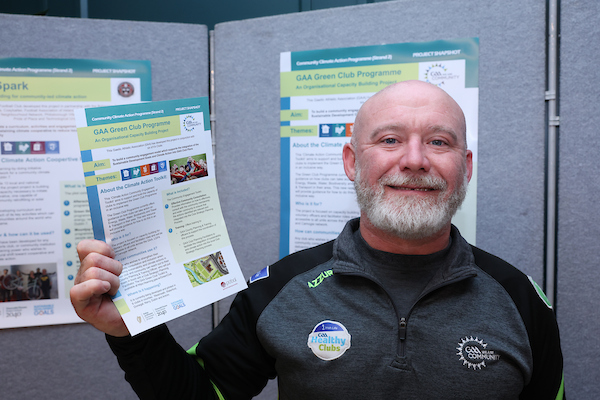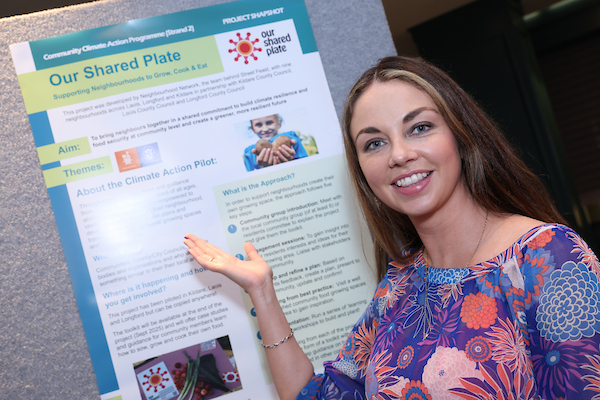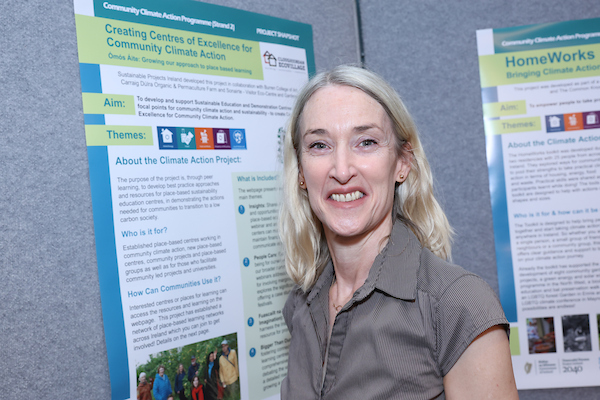
National climate conference in Dublin
New national research published by the Department of Climate, Energy and the Environment and Pobal was presented at a national climate conference in Dublin recently, along with three projects with partner organisations based in Clare.
The research evaluated 19 projects funded under the Community Climate Action Programme and outlines how these models can be scaled and replicated across the country.
It found that successful projects shared key features: early and sustained community engagement, intentional inclusivity of marginalised groups, flexible and responsive design, and a commitment to learning by doing. The research notes the value in longer-term funding which can support the stability and sustainability of climate initiatives, while also building and maintaining community trust.
READ NEXT: Shannon Airport welcomes new state-of-the-art facility for people with complex care needs
Three projects with partner organisations based in Clare were showcased at the event:
‘Creating Centres for Excellence for Community Climate Action’ – Cloughjordan Eco-Village, Burren College of Art, Carraig Dúlra Organic & Permaculture Farm and Sonairte - Visitor Eco-Centre and Gardens – a project to develop and support Sustainable Education and Demonstration Centres as focal points for community climate action and sustainability - to create Centres of Excellence for Community Climate Action.

‘GAA Green Club Programme’ – An organisational Capacity Building Project’ – Gaelic Athletic Association (Nationwide), Camogie Association of Ireland, LGFA, Country & City Management Assoc., Irish Water, LA Waters Programme, National Biodiversity Data Centre, NTA, Regional Waste Authorities, SEAI and the Climate Action Regional Offices - a project to build a community engagement model which supports the integration of the Sustainable Development Goals and Climate Action into GAA Club Plans.

‘Homeworks’ – The National LGBT Federation and The Common Knowledge Centre for Sustainable Living – who developed a toolkit which enables communities to pool their collective knowledge and follow a practical guide to ensure inclusive collaboration with groups, enhance local ideas and bring climate solutions at community level to fruition. Already the toolkit has supported the development of eight community garden projects, a green energy and solar education programme in the North West, and a biodiversity education and bat preservation walk in Clare.

As part of the programme, each project created tools, resources and approaches to assist their communities to take meaningful action on climate change. The expansion of good practice was also examined, with the analysis highlighting that continuous and flexible funding, as well as strong local leadership, play an important role in maintaining momentum.

Minister for Climate, Energy and the Environment Darragh O’Brien TD said: “This research highlights the importance of building climate action at local level and that community climate action is most impactful when it is grounded in an equal partnership with communities and centred on the co-creation of climate initiatives and outputs. By directly supporting marginalised communities, through the Community Climate Action Programme, funded projects developed innovative approaches tailored to local needs, unlocked practical solutions, creating real momentum and engagement. These projects show us how a just transition can be both inclusive and effective.”
Anna Shakespeare, CEO of Pobal, said: "We are delighted to have worked with the Department of Climate, Energy and the Environment on the CCAP (Strand 2) Programme to support organisations develop innovative and good practice projects which build the capacity of communities to take climate action at local level.
We have worked closely with the projects supporting them to adapt and develop in response to the real needs of the communities, especially those most marginalised, to ensure the trainings and resources created are relevant and impactful. This new research also offers an exciting opportunity.
Working on behalf of Government to support disadvantaged communities, we have a deep understanding of the relationship between social and economic inequality and climate change vulnerability and are committed to growing the evidence base in this area.
The research provides valuable insights into how bottom-up, community climate action can be fostered and sustained and can inform future programmes, enabling progress on both social inclusion and net zero, simultaneously.”
Other projects featured in the research include a capacity-building programme that transformed food waste into sustainable community food systems, coastal adaptation training in areas vulnerable to rising sea levels, and a feminist-led approach to climate justice that placed care, equality and empowerment at the centre of local responses. Additional initiatives explored circular economy models and developed accessible, community-based climate education.
The Climate Conference included opportunities for each project to showcase the resources supports, tools, know-how and approaches to assist communities to take meaningful action on climate change. Contributors to the conference included Professor Jennie Stephens (Maynooth University), Ali Sheridan (Chair of the Just Transition Commission), and community climate implementers from across the country, including from the Spark and Homeworks projects.
Subscribe or register today to discover more from DonegalLive.ie
Buy the e-paper of the Donegal Democrat, Donegal People's Press, Donegal Post and Inish Times here for instant access to Donegal's premier news titles.
Keep up with the latest news from Donegal with our daily newsletter featuring the most important stories of the day delivered to your inbox every evening at 5pm.